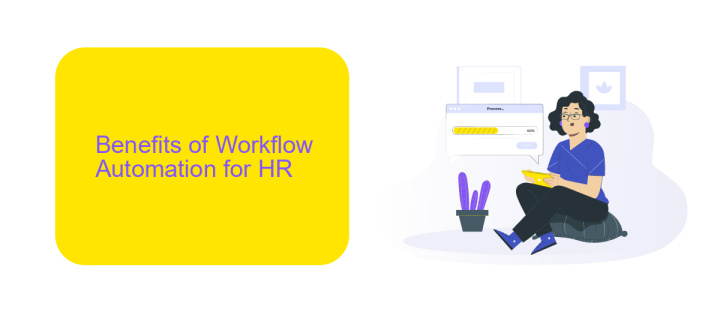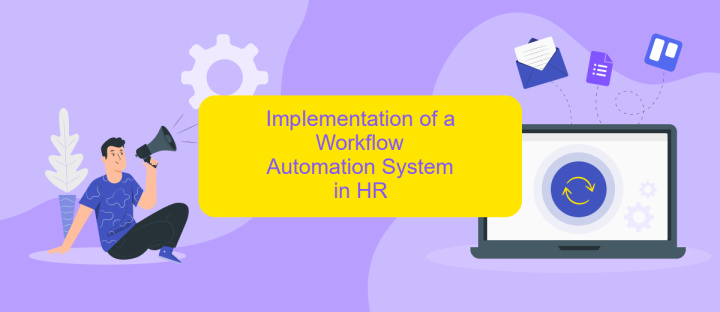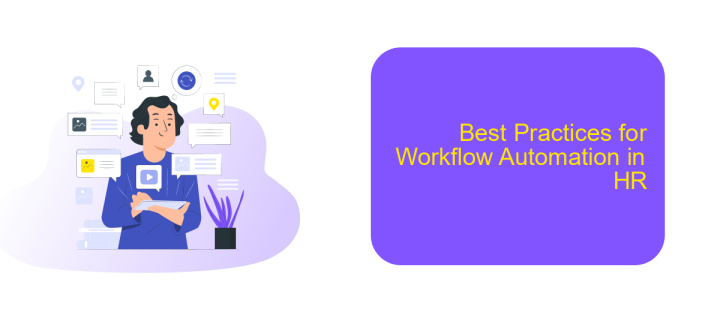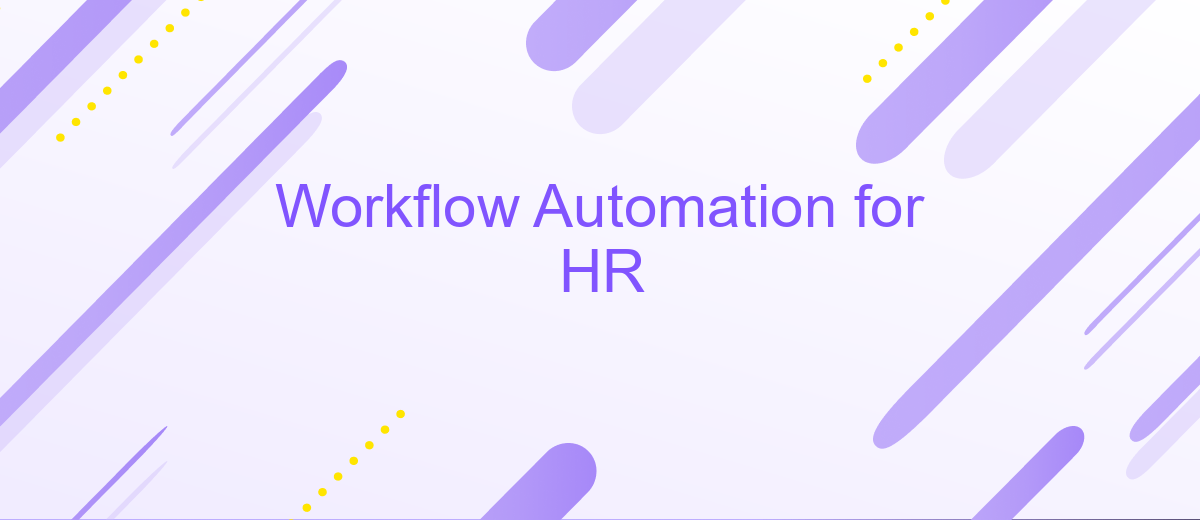Workflow Automation for HR
In today's fast-paced business environment, workflow automation for HR is no longer a luxury but a necessity. By streamlining repetitive tasks and enhancing efficiency, automation tools empower HR professionals to focus on strategic initiatives. This article explores how implementing workflow automation can transform HR operations, reduce errors, and improve overall employee satisfaction. Discover the benefits and best practices for integrating automation into your HR processes.
Introduction: Understanding Workflow Automation in HR
Workflow automation in HR has revolutionized the way human resources departments operate, streamlining processes and enhancing efficiency. By automating repetitive tasks, HR professionals can focus on more strategic activities, such as talent management and employee development.
- Reduced manual errors
- Improved compliance
- Enhanced employee experience
- Time and cost savings
One of the key aspects of workflow automation is the integration of various HR systems and tools. Services like ApiX-Drive facilitate these integrations, allowing seamless data transfer between different platforms. This ensures that all HR processes are interconnected, providing a unified and efficient workflow. By leveraging such integrations, HR departments can achieve higher levels of productivity and accuracy.
Benefits of Workflow Automation for HR

Workflow automation for HR brings a multitude of benefits that significantly enhance efficiency and productivity. By automating repetitive tasks such as employee onboarding, leave management, and payroll processing, HR professionals can focus on more strategic activities like talent development and employee engagement. This not only reduces the likelihood of human error but also ensures compliance with organizational policies and legal requirements, ultimately leading to a more streamlined and error-free HR process.
Additionally, integrating various HR systems through services like ApiX-Drive allows for seamless data flow between different platforms, eliminating the need for manual data entry and reducing administrative overhead. ApiX-Drive facilitates the connection of HR software with other business tools, ensuring that information is consistently updated and readily accessible. This integration capability not only saves time but also provides valuable insights through real-time data analytics, enabling HR teams to make informed decisions swiftly and effectively.
Implementation of a Workflow Automation System in HR

Implementing a workflow automation system in HR can significantly streamline processes, reduce manual errors, and enhance overall efficiency. The first step involves identifying the HR tasks that can be automated, such as employee onboarding, leave management, and performance reviews. Once these tasks are identified, the next step is to choose an appropriate automation tool that meets the organization's specific needs.
- Identify repetitive tasks suitable for automation.
- Select a reliable workflow automation tool.
- Integrate the automation tool with existing HR software using services like ApiX-Drive.
- Customize the workflow to align with HR policies and procedures.
- Train HR staff on using the new system effectively.
- Monitor and optimize the automated workflows regularly.
By following these steps, HR departments can achieve a more efficient and error-free workflow. Services like ApiX-Drive facilitate seamless integration with various HR software, ensuring that data flows smoothly between systems. This integration is crucial for maintaining accuracy and consistency across all HR processes, ultimately leading to better employee satisfaction and organizational performance.
Best Practices for Workflow Automation in HR

Implementing workflow automation in HR can significantly streamline operations, enhance accuracy, and save valuable time. To achieve optimal results, it's essential to follow best practices tailored for HR processes.
Start by identifying repetitive tasks that consume a lot of time and are prone to human error. Automating these tasks can free up HR personnel to focus on more strategic functions. Additionally, ensure that the chosen automation tools are user-friendly and integrate seamlessly with your existing HR systems.
- Document and map out current HR processes before automating.
- Choose versatile automation tools like ApiX-Drive for seamless integrations.
- Regularly review and update automated workflows to adapt to changing needs.
- Train HR staff to effectively use automation tools.
- Monitor and measure the performance of automated processes.
Incorporating these best practices will help ensure that your HR workflow automation is both efficient and effective. By leveraging tools like ApiX-Drive, you can easily integrate various HR systems, making the transition to automated workflows smoother and more manageable.
- Automate the work of an online store or landing
- Empower through integration
- Don't spend money on programmers and integrators
- Save time by automating routine tasks
Conclusion: Future of Workflow Automation in HR
The future of workflow automation in HR looks promising, driven by advancements in technology and increasing demand for efficiency. As organizations continue to recognize the importance of streamlined processes, the integration of AI and machine learning will play a crucial role in automating repetitive tasks, enhancing decision-making, and improving overall employee experience. Tools and platforms like ApiX-Drive will become indispensable, enabling seamless integration between various HR systems and applications, thus ensuring a smooth flow of data and processes.
Moreover, the adoption of workflow automation will lead to more strategic HR functions, allowing HR professionals to focus on talent management, employee engagement, and organizational development. With continuous improvements in automation technologies, HR departments will be better equipped to handle the complexities of a modern workforce, from remote work arrangements to compliance with evolving regulations. Ultimately, the future of workflow automation in HR promises a more efficient, agile, and employee-centric approach to managing human resources.
FAQ
What is workflow automation in HR?
How can workflow automation benefit HR departments?
What HR tasks can be automated?
How can I integrate different HR systems and tools for automation?
Is workflow automation secure for handling sensitive HR data?
Apix-Drive will help optimize business processes, save you from a lot of routine tasks and unnecessary costs for automation, attracting additional specialists. Try setting up a free test connection with ApiX-Drive and see for yourself. Now you have to think about where to invest the freed time and money!


